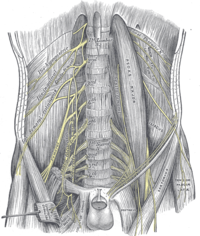
A Cell Type Selective YM155 Prodrug Targets Receptor-Interacting Protein Kinase 2 to Induce Brain Cancer Cell Death.
Sign Up to like & getrecommendations! Published in 2023 at "Journal of the American Chemical Society"
DOI: 10.1021/jacs.2c11715
Abstract: Glioblastoma (GBM) is the most prevalent and aggressive primary central nervous system (CNS) malignancy. YM155 is a highly potent broad-spectrum anti-cancer drug that was derived from a phenotypic screen for functional inhibitors of survivin expression,… read more here.
Keywords: cell; brain; ym155; cancer ... See more keywords

Lapatinib potentiates cytotoxicity of YM155 in neuroblastoma via inhibition of the ABCB1 efflux transporter
Sign Up to like & getrecommendations! Published in 2017 at "Scientific Reports"
DOI: 10.1038/s41598-017-03129-6
Abstract: Adverse side effects of cancer agents are of great concern in the context of childhood tumors where they can reduce the quality of life in young patients and cause life-long adverse effects. Synergistic drug combinations… read more here.
Keywords: neuroblastoma; drug; lapatinib; efflux transporter ... See more keywords

Inhibition of survivin enhances radiosensitivity of esophageal cancer cells by switching radiation-induced senescence to apoptosis
Sign Up to like & getrecommendations! Published in 2018 at "OncoTargets and therapy"
DOI: 10.2147/ott.s166798
Abstract: Purpose Strategies to increase radiosensitivity are urgently needed. Combining radiosensitizing reagents with radiotherapy could improve the outcome of cancer treatment. Some preclinical studies showed that sepantronium bromide (YM155) could sensitize cancer cells to radiation by… read more here.
Keywords: radiosensitivity; apoptosis; radiation induced; senescence ... See more keywords

Survivin inhibition with YM155 ameliorates experimental pulmonary arterial hypertension
Sign Up to like & getrecommendations! Published in 2023 at "Frontiers in Pharmacology"
DOI: 10.3389/fphar.2023.1145994
Abstract: Background: Imbalance between cell proliferation and apoptosis underlies the development of pulmonary arterial hypertension (PAH). Current vasodilator treatment of PAH does not target the uncontrolled proliferative process in pulmonary arteries. Proteins involved in the apoptosis… read more here.
Keywords: ym155; bcl2 mki67; expression survivin; pah ... See more keywords